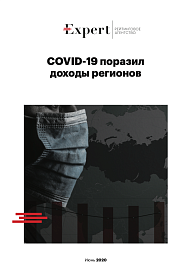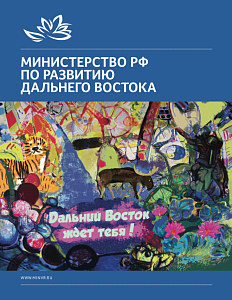The study of the Expert RA rating agency notes the positive effect of the anti-crisis measures introduced by the federal government, and also estimates the total regional budget deficit for the current year.
A third of Russia’s regions showed a decrease in budget revenues in the first four months of 2020, and the drop in tax and non-tax revenues affected more than two-thirds of the regions and amounted to over RUB 200 billion. The rescue plan for Russian subjects is based on liquidity support from the federal government. The introduced anti-crisis measures slowed down the drop in revenues and the growth of budget deficits, but additional support from the federal authorities may be required at least in comparable volumes if the «second wave» scenario is implemented and non-working weeks repeat at the end of the year. According to Expert RA, the overall deficit of regional budgets by the end of the year will be about RUB 200 billion, or 2.5% of the income tax of regional incomes. Low interest rates give regions a chance to finance this deficit with long bonds, which reduce the pressure on budget liquidity.
Roscongress Foundation analysts highlighted the main theses of this research, accompanying each of them with suitable fragments of video broadcasts of panel discussions held as part of business programs of the key events hosted by the Foundation.
According to the results of budget execution for four months of 2020, regional budgets of Russian subjects showed a strong decline. However, the gap could have been much larger had it not been for additional federal budget support to compensate for revenue shortfalls and ensure fiscal sustainability in the pandemic.
2020 started quite successfully, and Russian subjects demonstrated a revenue base increase in the first quarter by 10.9% year to year. However, after the publication of results of budget execution for four months of 2020, it became clear that against the background of the measures introduced to contain the pandemic and prevent the development of crisis phenomena, regional budgets of Russian subjects in overall received RUB 36.5 billion less for this period than for the same period in 2019. These indicators are mainly due to the sharp incomes decline in April (-20.2%). The incomes decline was noted in more than a third of country’s regions. The leaders in reducing the revenue base are the Kemerovo Region (-27.4%) and the Republic of Tatarstan (-24.1%).
The Russian government has taken a number of supportive measures to improve subjects’ balance of budgets in context of worsening economic situation. In particular, it canceled or extended a number of legislative restrictions enshrined in the Budget Code of the Russian Federation. The government also ordered to allocate additional transfers in total amount of about RUB 270 billion, including the bed fund equipment as part of the fight against coronavirus infection.
Shock events in the economy are accompanied by unfavorable external conditions, which, among other things, are aggravated by low prices for raw materials and a decline in production cycles. This leads to a slowdown in tax revenues, in particular, their reduction in the main budget-forming taxes: corporate income tax (-11.2%), corporate property tax (-12.2%) and taxes on total income (-17.8% ). At the same time, personal income tax revenues increased by 2.8%, but in April they sank by almost 20% against the level of April 2019. Also, receipts from excise taxes increased by 7.9% in 71 regions.
Regional budget expenses in the first four months of 2020 increased by 20.8% over the same period in 2019. The increase in expenses was recorded in almost all regions, with the exception of the Yamalo-Nenets Autonomous Okrug, Murmansk, Kaliningrad and Lipetsk regions.
To a large extent, this growth is due to an increase in expenditures in April 2020 by 30.1% compared to April 2019 in connection with a number of measures implementation to ensure sustainable economy development when the situation worsens, support for unemployed citizens and families with children. In the structure of regional expenditures, a social orientation has been preserved. In January — April 2020, 2.4 RUB trillion were allocated for financial support of social policy, education, health care, culture, physical education and sports, which is 21.7% higher than the same level in 2019, while the share of expenses in the social sector in total budget expenses increased by 0.5 p.p. Also, there happened changes in the expenses structure. So, in connection with a significant increase in healthcare costs (+67.7%) associated with the creation of additional beds, payments to medical personnel, the purchase of special protective and medical equipment, there was an increase in its share in the total amount of expenses by 3, 6 pp.
Video: https://roscongress.org/sessions/mir-v-usloviyakh-pandemii-covid-19-globalnye-strategii/search/#00:27:08.416
The total public debt of the Russian Federation subjects from 2017 showed a decline as a result of improved tax collection and increased fiscal sustainability. But the resulting fiscal imbalance in the first four months of 2020 contributed to the growth of public debt by 2.1% compared to last year.
St. Petersburg (1.8 times) and Irkutsk Oblast (1.7 times) became the leaders in increasing debt. The debt structure has changed: the share of market debt increased (+2.7 pp), the share of bank debt decreased (-2.1 pp), and budget loans are still the largest share in the debt portfolio (48.4 %).
In order to curb a debt burden rapid growth and maintain financial stability, the government freed the Russian Federation subjects from the budget loans repayment by the end of this year and extended the program of budget loans restructuring until 2029; a term for granting treasury loans was also increased from 90 to 180 days. From 2021, restrictions on debt securities issuance by regions that do not have the required credit rating will be lifted, and an ability to provide horizontal budget loans between regions will be available. Horizontal loans are unlikely to find a lively response from subjects. In context of a slow economic recovery for regions, the priority will be to accumulate funds as much as possible to support their economy, rather than allocate them to help other regions.
If the economic recession continues until the end of the year, regional budgets may show a decrease in their own revenues and will largely depend on support from the federal center. At the same time, Expert RA assesses the possibility of cutting costs as extremely limited, since the regions face obligations to implement national projects, as well as financing the pandemic consequences.
See other materials posted in special sections of the Roscongress COVID-19 Information and Analytical System, StayHomeEconomy , Regional Policy and Entrepreneurship, dedicated to the coronavirus response, possible ways to stabilize the economy in the pandemic, and the development of entrepreneurship.






